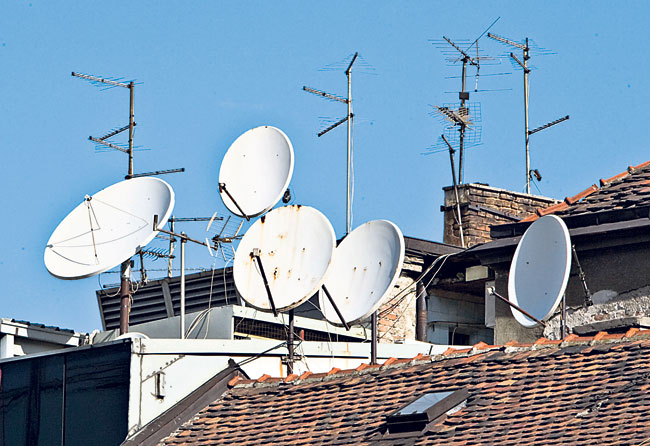
SARAJEVO, 23.12.2017.-The question of media protection from outer political influences has, above all, been part of regulatory principles included in the Law on Communication of Bosnia and Herzegovina and these included the separation of broadcasters from political control and manipulation with the purpose of strengthening the democracy principles and establishing market economy on fair basis.
Consequently, rules and regulations imposed by the Communication Regulatory Agency of BiH (hereinafter Agency) are heading into this direction in order to provide undisturbed work of electronic media houses in Bosnia and Herzegovina. Namely, according to Agency Rules No. 76/2016 on audiovisual media services and Rules No 77/2016 on Radio media services which regulate the scope of work on RTV Stations in Bosnia and Herzegovina, there are provisions, primarily those concerning public stations (those established and founded by the State or Entity, including Brcko District and Canton or Municipalities, their organizations or institutions, that is, those with over 51% in ownership or financing which is altogether in accordance with Agency rules. These stations, having considered their statutes and financial funding, have been most vulnerable in terms of having their professional independence being exposed to the risk of being influenced by outer factors.
In order to protect the independence of public RTV Stations, the Agency determined that anyone being responsible for advocating and anyone being engaged as chief – in – editor and main editor of any public RTV Station, cannot perform any public function, nor he / she can be a member of any political party body which, according to the definition, also includes political party involvement, including independent candidates, coalition or list of independent candidates confirmed and verified prior to elections and also organizations eventually organized by the above mentioned political subjects. Also, persons authorized to advocate and represent and entities in charge with editing policies at highest level (chief – in – editor and main editor) at Public RTV service are legally obliged to provide the Agency with the statements confirming that they do fulfill this particular condition.
Besides, during the appointing of members for Editing Council of Public RTV Services (counselling body of public RTV stations covering the issues of program contents and program schedules). Agency defined that appointed public duty officer cannot be a member of Editing Council. As far as the Public RTV Service is concerned, reference Laws, on both (Entity and State) levels clearly define that the members of Supervising Board, members of Program Council, where the Law defined their functions, cannot be at the same time members of political parties and their associates bodies. The same provision was included by the Agency as part of the Public RTV Service Permit Common Provisions. Also, the Law and conditions of the System Permit, define that the program of public RTV Services shall produce and manage the system independently from the attitudes of state bodies, political parties and other interest – based groups. Agency has, through the Code on Audiovisual media services and to some extent, provided the protection to RTV Stations by establishing the standards, as far as the program producing and broadcasting is concerned, with all due respect to fundamental rights and freedoms / liberties.
Apart from the fact than every program broadcasted by any RTV Station should be based on the respect of professional and commonly – accepted values and ethic standards righteous and unbiased, he, above all, cannot tendentiously promote interests of a single political party or any group or an individual. All of the above mentioned represents exactly what the Agency had to do in order to ensure independent work by RTV Stations in terms of broadcasting and program production and that is to define principles and norms that may be used to protect the above mentioned entities. What the Agency cannot have impact on and cannot influence and what represent possible influence to media independence is actually financing. We witness very difficult and hard financial position the RTV Services had been in (particularly BRHT) as they may experience a complete financial decline and may even be switched off due to unstable and insufficient financing. Other RTV Stations are in not better position either, bearing in mind that our media market is spaciously small, rather insignificant and quite poor, comparing to neighboring or European countries.
In we take into consideration the fact that financing of certain media house is one of the most fundamental criteria according to which media liberties can be determined, the re- port made by Reporters with no Borders for 2017, which placed Bosnia and Herzegovina into 65th position out of 185 countries being analyzed, comes as no surprises whatsoever.
This text is a part of E-Bulletin– second edition of special serial of BHN online bulletin implemented through the “Media and Public Reputation” (origin. “Mediji i javni ugled”) project, also representing a contribution to public debate regarding the transparency of media ownership and upholding and encouraging the passing of set of laws aimed to advance media field and information market in BiH.